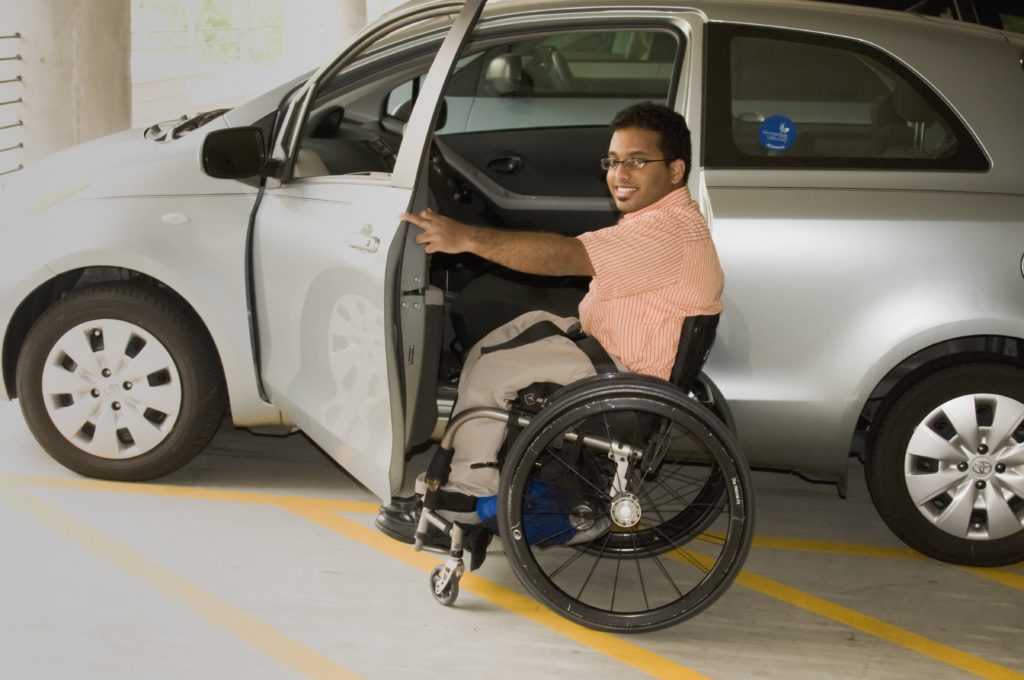
Published — June 1, 2022
The following post does not create a lawyer-client relationship between Alburo Alburo and Associates Law Offices (or any of its lawyers) and the reader. It is still best for you to engage the services of your own lawyer to address your legal concerns, if any.
Also, the matters contained in the following were written in accordance with the law, rules, and jurisprudence prevailing at the time of writing and posting, and do not include any future developments on the subject matter under discussion.
Related article: SHOULD WE HIRE A SENIOR CITIZEN?
Republic Act No. 7277 or “Magna Carta for Disabled Persons” defines Disabled Persons as those suffering from restriction of different abilities, as a result of a mental, physical or sensory impairment, to perform an activity in the manner or within the range considered normal for a human being. According to Philippine Statistics Authority, of the 92.1 million household population in the country, 1.44 million persons or 1.57 percent had disability, based on the 2010 Census of Population. Statistics also showed that the majority of PWDs belong to the working age group (15-64 years old).
To provide persons with disability an equal opportunity for employment, Republic Act No. 10524 requires at least one percent (1%) of all positions in all government agencies, offices or corporations shall be reserved for persons with disability and for private corporations with more than one hundred (100) employees, they are encouraged to reserve at least one percent (1%) of all positions for persons with disability.
Also, to further motivate companies in hiring Persons with Disability (PWD) the Government grants incentives.
Are All Workers with Disability Considered Disabled Workers?
The mere fact that a worker has a disability does not make him a disabled worker because his disability may not impair his efficiency or the quality of his work. If despite his disability he can still efficiently perform his work, he would be considered a qualified disabled worker entitled to the same treatment as qualified able-bodied workers. (Bernardo v. NLRC, G.R. No. 122917, July 12, 1999.)
When May An Employer Hire A PWD?
An employer may hire a PWD when:
- It is necessary to prevent curtailment of employment opportunities; and
- It will not create unfair competition in labor costs or lower working standards
What Is Included In The Employment Agreement With PWD?
Any employer who hires handicapped workers shall enter into an employment agreement with them, which agreement shall include:
- The names and addresses of the handicapped workers to be employed;
- The rate to be paid the handicapped workers which shall not be less than seventy- five (75%) percent of the applicable legal minimum wage;
- The duration of employment period; and
- The work to be performed by handicapped workers.
The employment agreement shall be subject to inspection by the Secretary of Labor or his duly authorized representative.
What Are The Incentives Provided By Law To Private Corporations Who Hires PWDS?
Private corporations who employs PWDs shall be entitled to the following incentives:
- Private entities that employ PWDs either as regular employee, apprentice or learner, shall be entitled to an additional deduction, from their gross income, equivalent to twenty five percent (25%) of the total amount paid as salaries and wages to PWDs.
However, to be entitled to the income tax deduction, the following must be complied with:
- The entity must present proof certified by the Department of Labor and Employment that such PWD are under their employ; and
- The PWD is accredited with the Department of Labor and Employment and Department of Health as to his disability, skills, and qualifications
- Private entities that improve or modify their physical facilities in order to provide reasonable accommodation for PWDs shall be entitled to an additional deduction from their net income, equivalent to fifty percent (50%) of direct cost of the improvements or modifications. This however, does not apply to improvements or modifications of facilities required under B.P Blg. 344 or “An Act to Enhance the Mobility of Disabled Persons by Requiring Certain Buildings, Institutions, Establishments and Public Utilities to Install Facilities and Other Devices.”
Alburo Alburo and Associates Law Offices specializes in business law and labor law consulting. For inquiries, you may reach us at info@alburolaw.com, or dial us at (02)7745-4391/0917-5772207.
All rights reserved
SUBSCRIBE NOW FOR MORE LEGAL UPDATES!
[email-subscribers-form id=”4″]

